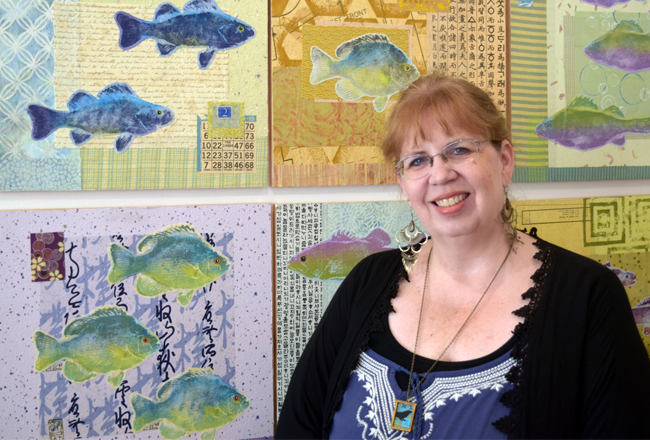
For many women, the aftermath of a divorce creates a sense of vulnerability that is not easy to heal. And that”™s where Fiona Eckersley comes in.
“On the outside, they look really confident and strong,” said Eckersley, who runs a confidence coaching service called Find Your Fabulous with Fiona out of her home in Fairfield. “But what they show on the outside is not necessarily the way they feel on the inside, and that”™s the conflict. Which is why they have such a hard time understanding, ”˜Why did this hit me so hard? Why can”™t I move on? Why am I still looking back to what happened?”™ ”
Eckersley came to confidence coaching three years ago during a midlife career switch after a friend recommended that she pursue health coaching. But she soon realized that her potential clients needed something that went beyond a generic wellness focus.
“I transitioned from health coaching to working with women to change all aspects of their life ”” not just eating correctly, but finding out who they are and what their voice is,” she continued. “It”™s amazing how many women get to be 40 or 50 years old and they just feel lost. Many of them have been married 20 or 30 years and a lot of them have careers, but they feel like they spent all of this time looking after other people and suddenly they realize that they don”™t know what it is they like or they want.”
In the course of her work, Eckersley noticed that the divorce itself is usually not the main issue that baffles or hampers her clients, who suddenly find themselves too deep in introspective second-guessing. “It”™s everything that starts before the divorce,” she added. “They ask themselves, ”˜Why did they marry that guy in the first place?”™ ”” and the divorce brings it to a head.”
The Find Your Fabulous with Fiona service runs the course of 12 sessions, each lasting 50 minutes per week. Eckersley”™s client base is national and her consulting is done via telephone or Zoom web conferencing.
Eckersley, who went through a divorce after a 17-year marriage, works to understand why her clients have not been able to transition to a new life chapter. “The main thing is what I call curing the divorce hangover, which is getting a handle on the emotions and not having the emotions controlling you,” she explained. “Because they are never going to go away ”” it”™s always going to be there, but it”™s not going to trigger them anymore. I am trying to get them to achieve forgiveness of self and releasing anger of self. Once they”™ve got that, they start to figure out passions and who they are.”
Eckersley”™s clients are given assignments. “I call it action sets, but it”™s really homework,” she laughs, that can range from maintaining positive-focused journal entries to creating a new résumé to building a business plan for possible entrepreneurial endeavors to setting time aside each day for meditation. She views these as “little action steps to move them on to the next level.”
Client reaction varies per woman, Eckersley added, with some clients rapidly responding to her work. “You can tell from their tone of voice after a couple of weeks that there is a big difference from when they started,” she said.
As with any start-up, Eckersley”™s business hit a few challenges. “I tried getting a group program together, but I realized that I do different things with every woman,” she admitted, adding that she wanted to build a more visible regional presence and hoped to produce local events to be co-hosted with business and wellness experts. One area where she did not feel comfortable exploring was confidence coaching with men who had problems emerging from divorce.
“The men obviously have the same issues, but I think men process things differently and it would make more sense if they worked with someone who knows how they are exactly feeling,” she said. “I don”™t think I would know how a man is exactly feeling.”
As for looking back on her previous career in the classroom, Eckersley noted that confidence coaching for adults can require more work.
“Children want to learn a lot, but some adults are very resistant,” she stated. “You can”™t change somebody until they want to be changed. You can”™t help somebody that doesn”™t want to be helped.”






















